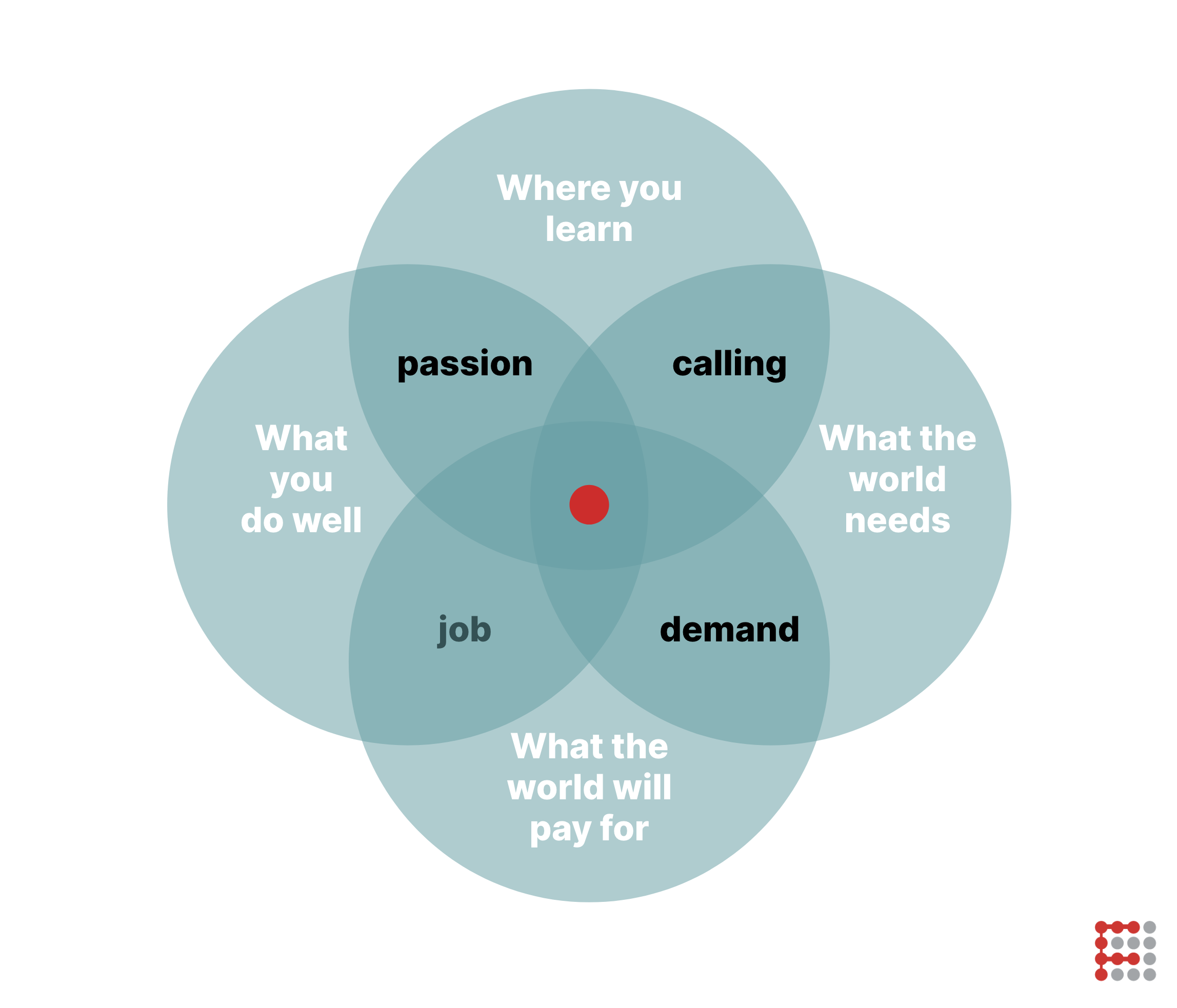
We hear it so often: Follow your passions. Do what you love and the money will follow. But then we keep listening for more specific advice and, not surprisingly, it often conflicts.
Recently, Jeffrey Katzenberg surprised a crowd by suggesting that young people follow not their dreams, but their skills: “I believe every human being does something great. Follow that thing you’re actually really good at and that may become your passion.” In the parlance of the diagram above, he’s suggesting that the joy of doing something well, something you’re suited for, can turn a job into a career.
Meanwhile, in a speech to Stanford business school students, Oprah Winfrey suggests two keys to finding your “power base,” following your instincts and connecting your skills with your values: “Align your personality with your purpose, and no one can touch you.” In the language of the diagram above: when what you do well meets what the world needs, you turn a talent into a career.
I love Oprah more than I do Disney (although with Frozen maybe I can love both). But the thing Winfrey and Katzenberg have in common here is the assumption that both success and fulfillment require that we look consciously at our lives, taking into account both practical needs and less rational – but equally crucial – issues of fulfillment.
So how do we apply all this to our actual lives-in-progress?
When I talk with people about finding satisfying work, the conversation often turns to deeper issues – what they like and don’t like doing day-to-day, and how that syncs (or doesn’t) with the effect they want to have on the world. The question underlying these conversations is a big one: “Does what I’m working on really matter?”
I often advise people at crossroads in their careers. So many of them have succeeded by societal standards but, in the midst of that success, they feel something is missing – call it heart or impact. They’ve been heads down, working hard for so long, and finally, they realize some part of their diagram of “doing your best work” is missing. And sometimes they conclude that – to find passion or meaning in work, they must make an enormous change.
Give it all up. Do something entirely different.
For some people – the ones who should have been artists, activists, explorers all along – taking such a leap is a lifesaving move. But for many more, the changes they might want to make are more subtle, more of a recalibration. I ask these people to envision ways they could use their talents not to start anew but to expand what is possible.
Which of their current skills can they offer the world, and in what capacities might
exercising those skills bring them fulfillment? How can they use those skills in new ways? If the company where they work isn’t aligned with their values, can they find one that is or go freelance? What aspects of their current work take them away from what they value, and how can they shift their focus to give the world what they’re made to offer?
In short, for each of us, the diagram of “doing your best work” is a work in progress, one that continues to shift across our working lives. When we start to engage with the questions it represents, we move closer to work that we feel matters.
What does your diagram look like? What shifts do you need to make?






